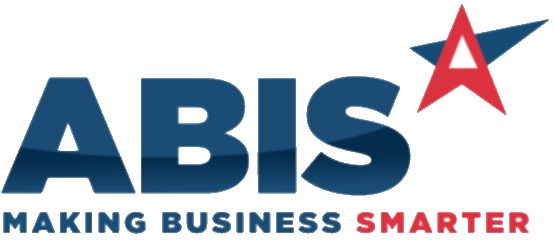Journal Entry Architecture Invoicing
From Adjutant Wiki
General Information
The Batch Generator can make several batch journal entries. One of the options is the batch for Invoicing (Sales Order shipment or Time Entry billing).
Many things affect which GL accounts will be debited or credited when creating an invoice. There are typically 5 accounts affected during invoicing:
1. Accounts Receivable
- AR is debited in the amount of the invoice.
2. Revenue
- Revenue is credited in the amount of the invoice less sales tax.
3. Sales Tax
- Sales Tax is credited in the amount of the tax on the invoice.
4. Cost of Goods Sold
- COGS is debited based upon the cost of the items on the Sales Order.
5. Work in Process
- WIP is credited based upon the cost of the items on the Sales Order. WIP has already been debited when the SO was shipped, so this account is always a wash (not affected).
Journal Entry Architecture
This section will describe how each fully qualified account is determined by the program.
Accounts Receivable
The AR account can be one of two accounts: The AR account on the [:File:Invoicing_CID_Maint_AR_Acct.png|CID Maintenance Screen] or the AR account listed on the To Screen of the customer being invoiced.
The account listed on the Bill To screen will always override the CID Maintenance screen. If left blank, the Maintenance AR Account will always be used.
Revenue
Revenue accounts are figured on an item-by-item basis; each item on the Sales Order may go to a different Revenue account.
The Revenue account is derived based on nine different factors:
1. Entry Architecture/itemcat.png|Item Transaction Category (aka ItemCat)
2. Entry Architecture/custcat.png|Customer Transaction Category (aka CustCat)
The ItemCat and CustCat are combined to create a Entry Architecture/transcats.png|Transaction Category. The Transaction Category provides the starting point for the Revenue and COGS accounts. These accounts will be overridden by GL Groups attached to the last 7 factors.
3. Sales Order Type - The Entry Architecture/sotype_glgroup.png|Sales Order Type (SOTYPE) may have a Entry Architecture/sotype_glgroup2.png|GL Group attached to it.
4. Warehouse - The Entry Architecture/shipwhse.png|Shipping Warehouse of each line item may have a Entry Architecture/shipwhse_glgroup.png|GL Group attached to it.
5. Department (only applicable in Time Billing) - In Time Billing, the department of the Task may have a GL Group attached to it.
6. Account Manager - The Entry Architecture/accmgr.png|Account Manager on the SO may have a Entry Architecture/accmgr_glgroup.png|GL Group attached to him/her.
7. Salesperson - The Entry Architecture/sp.png|Salesperson on the SO may have a Entry Architecture/accmgr_glgroup.png|GL Group attached to him/her.
8. Resource (only applicable in Time Billing) - In Time Billing, the Resource used may have a GL Group attached to him/her/it.
9. Solution Code (only applicable in Time Billing) - In Time Billing, the Solution Code used may have a GL Group attached to it.
Sales Tax
Sales Tax is typically split out in the GL one of two ways: by State or by Jurisdiction.
The Entry Architecture/states.png|States Rule (STATE) allows you to specify a GL account per state.
The Sales Tax Master screen allows you to specify sales tax by jurisdiction, however this is not recommended unless you are operating in Canada.
If a valid account is not found in either of these two places, the Sales Tax Account listed on the Maintenance screen will be used.
Cost of Goods Sold
COGS accounts are figured on an item-by-item basis; each item on the Sales Order may go to a different COGS account.
For stock items, the item's weighted average cost per Warehouse/Owner/Held For will be used.
For non-stock items, the cost entered on the Sales Order will be used.
The COGS account is derived based on nine different factors:
1. Entry Architecture/itemcat.png|Item Transaction Category (aka ItemCat)
2. Entry Architecture/custcat.png|Customer Transaction Category (aka CustCat)
The ItemCat and CustCat are combined to create a Entry Architecture/transcats.png|Transaction Category. The Transaction Category provides the starting point for the Revenue and COGS accounts. These accounts will be overridden by GL Groups attached to the last 7 factors.
3. Sales Order Type - The Entry Architecture/sotype_glgroup.png|Sales Order Type (SOTYPE) may have a Entry Architecture/sotype_glgroup2.png|GL Group attached to it.
4. Warehouse - The Entry Architecture/shipwhse.png|Shipping Warehouse of each line item may have a Entry Architecture/shipwhse_glgroup.png|GL Group attached to it.
5. Department (only applicable in Time Billing) - In Time Billing, the department of the Task may have a GL Group attached to it.
6. Account Manager - The Entry Architecture/accmgr.png|Account Manager on the SO may have a Entry Architecture/accmgr_glgroup.png|GL Group attached to him/her.
7. Salesperson - The Entry Architecture/sp.png|Salesperson on the SO may have a Entry Architecture/accmgr_glgroup.png|GL Group attached to him/her.
8. Resource (only applicable in Time Billing) - In Time Billing, the Resource used may have a GL Group attached to him/her/it.
9. Solution Code (only applicable in Time Billing) - In Time Billing, the Solution Code used may have a GL Group attached to it.
Work in Process
WIP accounts are figured on an item-by-item basis. The item's WIP account listed on the Entry Architecture/ohf_wipacct.png|OHF tab of the Item Master will be credited when the item is invoiced.
The same account is debited when the item is shipped. The debit entry for WIP is made during the Order) batch. The item's Control Account is credited.
If this account is blank or invalid, then the WIP account on the Entry Architecture/whse_wipacct.png|Warehouse will be used. If that account is blank or invalid, then the WIP account on the Entry Architecture/cid_wipacct.png|CID Maintenance screen will be used.
